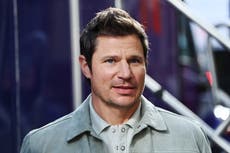‘Love Is Blind’ creator addresses allegations of ‘inhumane working conditions’
Creator claims that production was ‘transparent’ with participants from the beginning.
Love Is Blind‘s creator has addressed the “inhumane working conditions” allegations from former contestants.
In 2022, season two participant Jeremy Hartwell sued Netflix and production company Kinetic Content, citing “inhumane working conditions”. A year later, in a report from Insider, season two’s Nick Thompson and Danielle Ruhl alleged that there was a lack of mental health support on set.
Although Kinetic Content has largely denied the allegations and reports, CEO Chris Coelen spoke to Variety at length about the working conditions on the set. He claimed that cast members are both physically and mentally protected throughout the process.
Hartwell alleged in his lawsuit that the production’s “isolation” was intense, and claimed that the Netflix cast was left alone for hours on end “with no access to a phone, food, or any other type of contact with the outside world”.
According to Coelen, production was “transparent” from the very beginning about what filming would entail, adding that Thompson’s claims of being held “prisoner” were “insane”. The Kinetic Content CEO continued: “We tell them that they won’t be able to travel freely while they’re in the pods. We tell them they won’t have phones or TV or internet service in the pods or in their hotel rooms where they stay or in the romantic getaways.”
“You’re asked to stay in your hotel to protect the integrity of the experiment,” Coelen continued. “We disconnect their phones and internet so they can’t get online because people are tempted to look people up.”
In Hartwell’s ongoing lawsuit, he also alleged that the 20-hour work day as well as lack of access to food and water led to “inhumane working conditions” on set. Meanwhile, Coelen said that participants were able to go back to their hotel rooms at any time, were given multiple meals a day, and had access to bottled water and working sinks in the lounge.
Coelen also addressed Ruhl’s admission that she informed production that she had past issues with suicidal ideation but that she was cast anyway. In response to the allegation, Coelen said: “These are very serious issues that she describes, and if her recent allegations about her mental health history are true, unfortunately she didn’t disclose this before filming.”
While filming in Mexico, Ruhl reportedly began to struggle with suicidal ideation and informed producers that she didn’t trust herself and wanted to leave before anything bad happened. Coelen alleged Ruhl’s claims are untrue.
“She didn’t inform the production team that she was having any thoughts of self-harm. If she had, we wouldn’t have continued to film with her,” he responded. “She never asked anyone in production ever to leave the show. She was free to leave the experiment at any time.”
In the report from Insider, former Love Is Blind participants claimed that they did not have access to therapists while on set, a claim which Coelen also refuted. He told Variety that there were two psychologists present on the set while the participants were filming in the pods, and access to a 24/7 hotline from then on out.
After the show, Coelen said that the company encourages participants to try therapy and offers to cover the costs. Variety has viewed multiple emails between production and cast members, backing up Coelen’s claims.
“We’ve consistently offered to reimburse the costs of Ms Ruhl’s post-filming therapy,” Coelen added. “We’ve reached out to her privately, and we’d love to be in contact with her.”
He continued: “We consistently reiterate to people at the end of their time in the experiment: ‘We really urge you to seek aftercare.’ Even for people who don’t feel like they ‘need it,’ I encourage it, because I think you’ve spent a lot of time here talking about your feelings, and to all of a sudden just stop talking about your feelings, to me, would not be the best course of action.”
“It wasn’t something I specifically noted in the application itself,” Ruhl backtracked in a conversation with Variety. “I had conversations with producers. I had conversations with therapists, but to their point, it was nothing that had been written down, so whether or not something had been communicated to them, I don’t know,” she says. “I will admit that, at the time of filming, I did say that I was in a really good mental space.”
Join our commenting forum
Join thought-provoking conversations, follow other Independent readers and see their replies
Comments

Bookmark popover
Removed from bookmarks